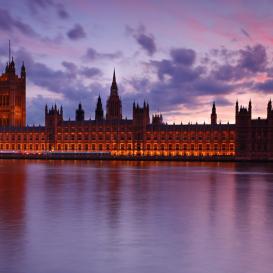I was a first-time voter in the recent 2015 election. And boy, weren’t we all in for a shock. The Conservatives took 330 votes in total, Labour came second with 229, SNP came third with 56, Liberal Democrats came fourth with 8 and Ukip secured 1 as did the Green’s.
When the exit poll dropped at 10pm, the numbers seemed unbelievable. A few hours later, it looked as if the exit poll may have even underestimated the number of seats the Tories will win and overestimated Labour’s share. When all ballots had been been counted, the Conservatives found themselves on the brink of an outright victory.
Overall the Lib Dems were crushed, Labour were gutted, UKIP were baffled, the SNP triumphed and the Conservatives rejoyced.
Not to mention the number of MP’s who have stepped down from their position. Nigel Farage was the the first to announce his resignation from the Ukip party. Farage promised that he would step down if he failed in his bid to win the seat of South Thanet in Kent.
Then Nick Clegg also announced he would be resigning as party leader of the Liberal Democrats after the party was routed. They only secured just 8 seats, a huge drop down from 57 they secured 2010 election.
Shortly after, Ed Miliband admitted he too would be resigning as the party leader for Labour after they saw the worst results Labour had seen since 1987. Even Harriet Harman, Deputy Leader of the Labour party, put fourth that she too will be resigning but will step up until a new party leader is found.
So how did the polls get it so wrong? For weeks until the big day, the front page of the national papers showed the polls with just minimal vote percentages between Labour and Conservatives. Often both parties were neck and neck.
According to Populus, the voting percentages stood at the following on the 5th of May:
| Con | Lab | LD | UKIP | GRN | Other |
| 33% | 33% | 10% | 14% | 5% | 5% |
One thing I feel needs to be highlighted from this election is that the first past the post system has over-run its course. Encouraging two-party politics can be an advantage, but in a multi-party culture, third parties with significant support can be greatly disadvantaged.
For example, it was believed UKIP gained three million votes in total. On the Mail Online election articles, there were many ‘Vote UKIP’ comments with thousands of ‘likes’ indicating the party had strong support. Yet UKIP obtained just one seat.
Furthermore, the Greens gained one million votes. However they also achieved just one seat.
You don’t have to agree with Ukip’s or the Green parties policies to realise the first past the post system is flawed. Both their seat outcome is an illustration of this.
Sadly, another disadvantage of the ‘First Past The Post’ system is that it encourages tactical voting where people vote against the candidate they most dislike. Surely you should be voting based on their policies and what you believe in- not attempting to avoid a certain person getting into power.
Furthermore, a party doesn’t have to receive a majority of votes in order for them to win, which poses the question whether or not it has the right to govern.
I would like a representative democracy come 2020 and believe that a proportional representation voting system should be brought into the UK. Our voting system was designed for an era when almost everyone voted for the two ‘big’ parties. But people have changed: they support a wider range of parties than ever before. I would like a fairer, more proportional voting system which ensures that seats in Parliament match the way people vote. This would make sure people’s choices were fairly reflected in Parliament, and would allow everyone to vote for the party with the policies they believe in.









